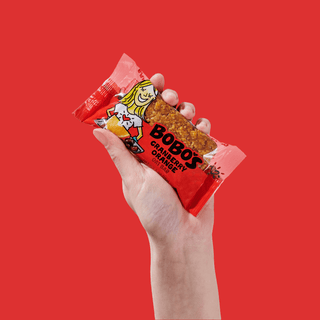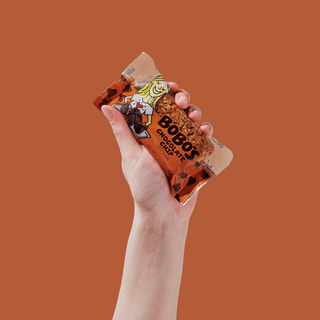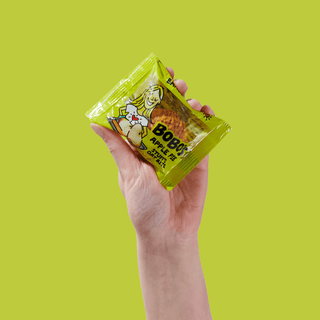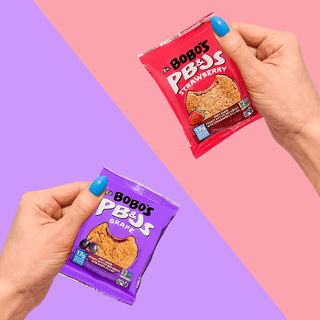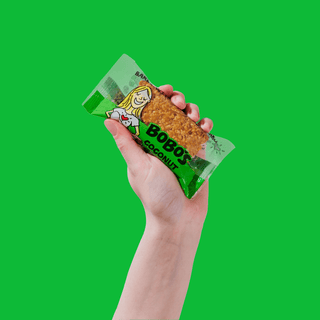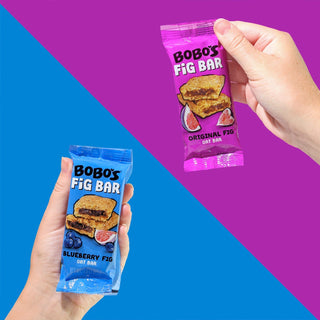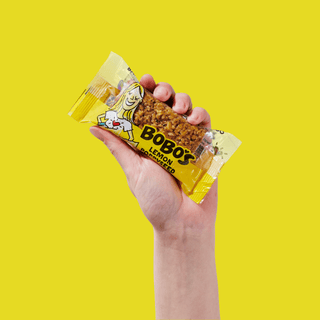By Emma Caplan-Fisher
Protein bars are a convenient, tasty, nutritious, and compact snack that many of us rely on from time to time, especially when we're running around from one place to the next. But, are protein bars a good meal replacement?
The answer isn't so simple and will depend on the particular bar and your needs. For example, if you're working out or hiking, you might be inclined to reach for a bar right away post-exercise instead of waiting to get home and cook a full meal.
Keep reading to learn about the benefits of protein bars as meal replacements, the drawbacks of replacing meals with protein bars, how protein bars compare to complete meals, choosing the right protein bars, and some great alternatives to protein bars as meal replacements.
Benefits of protein bars as a meal replacement
Here are some potential benefits of replacing meals with protein bars:
A quick and simple source of protein. Many of us are constantly on the go, which can make it difficult to fulfill our daily protein needs. One of the top protein bar benefits is that they're a great solution for when time is of the essence, since they can be eaten immediately, curb that hunger pang, and provide your body with essential amino acids. Plus, they're small enough to fit nearly anywhere.
A better way to control blood sugar. Since protein bars go well with carbohydrates, like fruit, you can easily create a well-balanced snack. This helps control and stabilize blood sugar, which is important since stable blood sugar has been found to sustain our energy and improve our brain function. Another option is choosing a bar that's balanced in its protein, carb, and fiber amounts, slowing sugar release into the bloodstream which can help you avoid those life-sucking energy crashes.
An easy and convenient post-workout food source. There's no denying that grabbing a pre-made, ready-to-go meal option right after a workout will fill you up quickly with next to no effort. Even better, protein bars inherently come with the protein-carbohydrate combination needed for muscle repair and recovery, and in several flavor options to boot. For quick protein before or after a workout, meal replacement protein bars are an easy choice.
Potential concerns with meal replacement protein bars
As you ask yourself, "can a protein bar replace a meal", consider that for all the benefits meal replacement protein bars offer us, they do come with some downsides you shouldn't ignore:
Extra sugar content. Some protein bars contain added sugars, corn syrup, sucrose, sugar alcohols (like xylitol, erythritol, sorbitol, or maltitol), or other sweeteners. Not only can these things irritate your stomach, but they can also negatively impact your blood sugar — despite many bars doing just the opposite.
Sub-par or unhealthy ingredients. Look out for high saturated fat content, extra calories, and artificial additives that go against a healthy diet. The best thing you can do is to read the ingredient and nutrition labels carefully and ask your healthcare provider about anything you're unsure of for your body or specific needs.
Too much of a good thing applies. Watch that you don't let yourself count on protein bars too regularly for a meal replacement. This can lead to the risk of poor eating habits and not getting enough whole foods which can result in nutrient deficiencies or imbalances.
As well, too much protein consumption can cause amino acid imbalances and restrain or prevent your body's ability to correctly utilize other nutrients. If this happens, your risk for muscle loss, fatigue, and weakness goes up. Plus, high amounts of protein have been found to increase the risk of kidney damage, as our kidneys filter out waste from protein metabolism. This means if you have a pre-existing kidney condition, you should consult your healthcare professional about proper dosage.
How protein bars compare to complete meals
When it comes to how protein bars stack up to full meals, think of it like this: There are about 20 grams of protein, 10 grams of fat, and 330 calories in a typical protein bar. You'll get about 43 grams of protein, 10 grams of fat, and 425 calories from a 3-ounce chicken breast, 3/4 cup of mixed vegetables, an apple, and a glass of cashew milk — along with other nutrients like potassium and phosphorus.
It's true that protein bars contain plenty of nutrients, vitamins, and minerals, like iron, calcium, fiber, and of course, protein. However, they do lack phytonutrients found in plant-based foods that we need for immune function and disease fighting, along with amino acids that help with muscle development and repair.
So, protein bars shouldn't consistently replace whole, natural foods — only do so when necessary, like when you're on the go or know you'll miss a proper meal. The best bars are usually classified as dietary supplements and aren't regulated by the USDA (United States Department of Agriculture) or the FDA (Food and Drug Administration).
How to choose the right protein bar as a meal replacement
If you need to skip a meal, be sure you're choosing the right protein bar as a meal replacement. The best healthy protein bars are about 500 grams and are made from a high-quality plant-based protein source. Most good meal replacement protein bar options contain about 20 grams of protein, 10 grams of fat, and 330 calories. If you're trying to lose weight, protein bars with no more than 10–15 grams of protein, 5 grams of fat, 230 calories, and at least 3 grams of fiber are best.
A nice thing about meal replacement protein bars is that if you have dietary preferences, like vegan or gluten-free, many are made to accommodate.
Other fast and tasty ways to add protein to your diet
Instead of protein bars as a meal replacement, there are plenty of delicious whole foods you can easily add to your diet to get more protein and the range of nutrients you need for optimal health.
For example, tofu, tempeh, nuts, seeds, and legumes like beans and lentils are tasty and versatile in many recipes, as are eggs and dairy products like Greek yogurt. Or, if you're simply looking for high protein snacks, you have plenty of options, including nut butter on toast or oatmeal with fruit and nuts.

